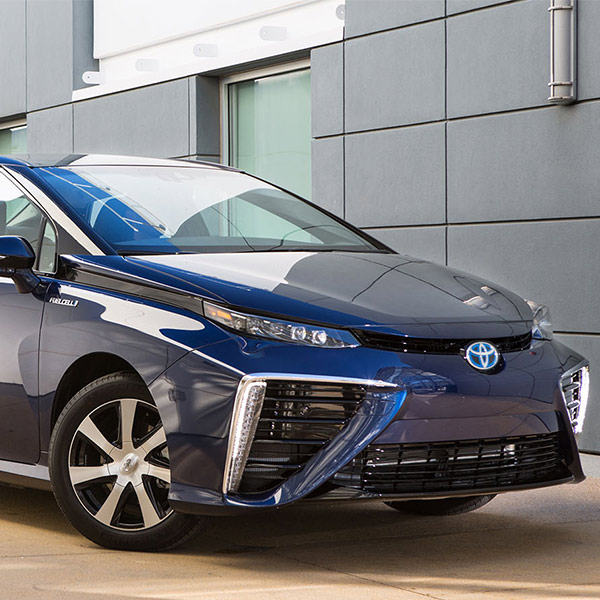Maryland’s largest school district last month approved a contract to lease 326 electric school buses over the next four years — the largest single procurement of electric school buses in North America and one that would double the number of battery electric school buses in the U.S.
But the real significance of the deal may be not its size — Montgomery County in suburban D.C. runs the 14th largest district in the U.S. — but its contract structure.
Battery electric buses’ fuel and maintenance costs are about 60% lower than conventional diesel vehicles, and they emit no carbon dioxide or particulate matter, which can contribute to asthma and other respiratory diseases. But sticker shock — BEBs cost two to three times as much as diesels — has limited most districts to one or two buses, based on available grant funding.
The contract Montgomery County Public Schools approved with Highland Electric Transportation is “budget neutral” — meaning the school district will pay no more than it would have to acquire traditional diesel vehicles. Highland will pay for the buses and recoup its investment through decreasing vehicle prices, less expensive fuel and maintenance savings. It also will be able to sell power from idled bus batteries to the grid when prices are high.
“As far as MCPS and the vendor know, this is the first budget-neutral, non-grant-dependent, school bus fleet electrification plan available,” schools Superintendent Jack R. Smith told the county’s Board of Education in seeking approval of the four-year $168.7 million contract. “This is the leading edge of the trend that is expected to sweep through the school bus industry.”
Nat Kreamer, CEO of Advanced Energy Economy, said the innovative contract could help meet President Biden’s pledge to electrify the nation’s 500,000 school buses within a decade.
“This leadership step taken by Montgomery County Public Schools shows that it’s possible today to electrify transportation at scale. Comprehensive solutions like Highland Electric’s can leverage private capital, meet the needs of fleet operators and serve communities now without burdening ratepayers or taxpayers.”
“Like solar, where the upfront technology costs are ‘sticker-shock’ high, but the value created for customers over time is substantial, selling EV as a service makes it affordable for customers to make the switch,” said Kreamer, co-founder of SunRun. “I believe Highland’s business model can accelerate the adoption of electric vehicles in the same way SunRun did for residential solar.”
He added: “These school buses do double duty, providing pollution-free transportation for schoolchildren and grid services that benefit all electric customers, while also being available as mobile backup for communities affected by power outages.”
Creating a Stir
Montgomery County intends to replace all of its more than 1,400 diesel buses by 2035.
The district will receive 25 Daimler Thomas Built buses with Proterra batteries for fall 2021, 61 in fall 2022 and about 120 — representing one-twelfth of its fleet — in each of the two years thereafter.
The district’s contract includes use of the buses, all charging infrastructure, charge management and electricity. Separately, it will be responsible for vehicle liability insurance, tags and any damage to vehicles.
“Budget neutrality depends on achieving all of the savings associated with not using the equivalent number of diesel buses,” Smith said. “As some of the diesel infrastructure is scaled back, there may be some modest cost in the early years, which will be offset in later years as the whole fleet is electrified.”
“It’s created quite a stir,” Todd Watkins, the district’s director of transportation, said of reaction to the contract. “If [the contract model accelerates BEB deployment] we’re certainly happy to play that role.”
The contract calls for Highland Electric to provide charging infrastructure at all five of the district’s bus depots, beginning this summer with one near Bethesda — less than a mile from a Pepco switching yard — which will need no power upgrades.
“In one [depot] we need a new loop, I’m told. In others, we just need some transformers. It varies across the different depot locations,” he said in an interview with NetZero Insider. For the first depot, “there was nothing else that Pepco had to do.”
Highland Electric agreed to allow the district’s staff to perform maintenance on the new buses and reimburse the district for the costs, “so we don’t all of a sudden lay off a bunch of our fleet maintenance employees,” Watkins said.
Watkins said the district’s routes average under 100 miles per day, with the longest about 130 miles. The depots will be equipped with Level 3 DC fast chargers, “so we know if we need to boost them in the middle of the day, we can do that.”
Watkins said he attended meetings where the three major American school bus manufacturers predicted that within 10 years, all orders for new school buses will be for electric versions.
But, even if the cost concerns are addressed, the limited range of the batteries and lack of charging infrastructure will make it a difficult sell in some districts. (See related story, Rural Va. Schools Skeptical on Electric Buses.)




